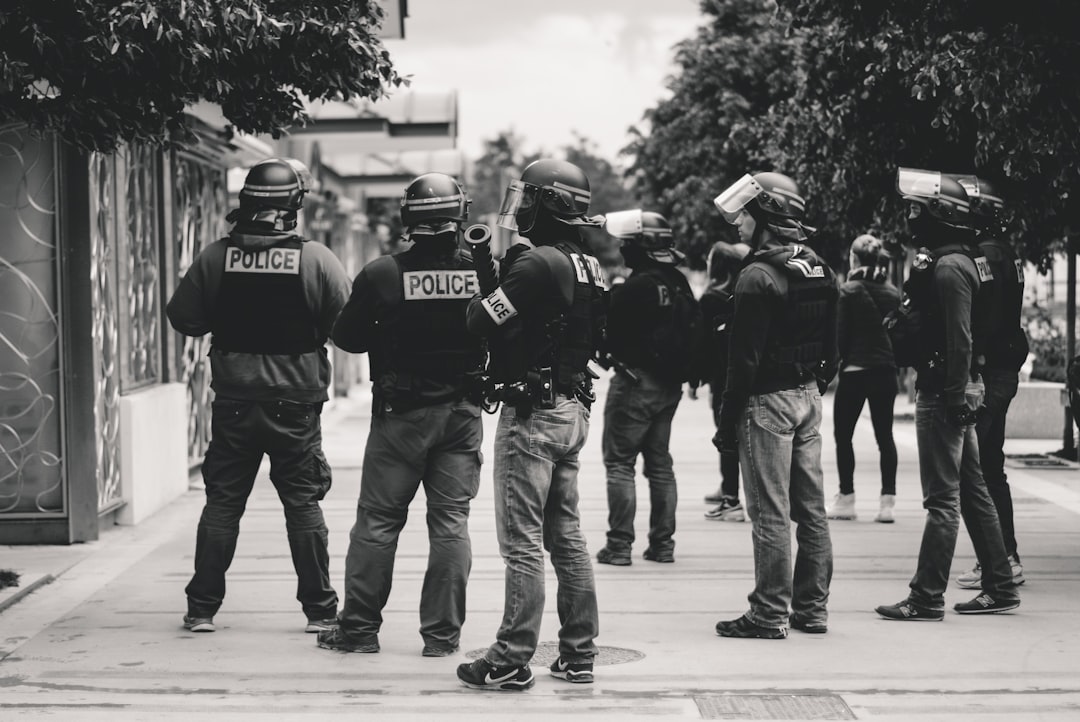How to Become a US Border Patrol Agent
Table of Contents
Career advancement
Great Starting Salary
Awesome Benefits
Fantastic Retirement
Watch: What is The Border Patrol Academy Like
Border Patrol Job Requirements
Qualifications to Become a Custom
and Border Protection Agent
Here are some of the requirements to become an CBP agent.
- Must be a United States citizen
- Must not be older than (37) years old
- Must have a clean criminal arrest history
- Must Have a bachelor’s degree from an Accredited University
- Be able to obtain a Top Secret Clearance
- Successfully complete a comprehensive background check
- Must be someone of good moral character
- Must Have Lived in the U.S. for (3) years prior to applying
Likely Disqualifiers
- Once holding a security clearance that was revoked
- Poor criminal history with a pattern of lawlessness
- Dishonorable discharge from the U.S. Armed Forces
- » Failure to pay court-ordered child support or alimony payments.
- Non-U.S. citizenship
- Failed Drug Test
- Failure to file income tax returns
- Currently having a federally funded student loan in default.
What Career path are you
most interested in?
- Agriculture Specialist (AGS)
- CBP Officer
- Border Patrol
- Marine Agent
- Air Interdiction Agent
- Port Security
Pay Scale, Average Salary For an CBP Agent
HOW Much Do Customs & border Protection Agents Make?
CBP Agent is a career ladder position with a grade level progression of GL-5, GL-7, GL-9, GS-11, and GS-12
* You may receive pay on top of your salary, depending on what county you work within.
Career Progression & Promotion Chart
Find Federal Jobs
Click below to search for federal jobs near me. Browse jobs by city and state.
Exceptional Careers with the U.S. Customs Service
****MAKE SURE TO VISIT THE OFFICIAL CBP WEBPAGE AS THE INFORMATION BELOW MAY HAVE CHANGED
Law Enforcement Careers that Make a Difference
Every Customs career takes integrity and professionalism. Common sense is a requirement, and uncommon responsibility is a reward. We all share in the excitement of a major drug seizure by our agency.
We all gain personal satisfaction in knowing that we are part of the frontline efforts to keep illegal drugs off the streets of America. Every Customs employee has the opportunity of pursuing a career that makes a positive difference in the life, security, and economy of our nation.
Stopping drug trafficking, money laundering, and smuggling are primary missions for the U.S. Customs Service. For the foreseeable future, much of our law enforcement efforts need to be focused on keeping dangerous and illegal drugs out of America and off the streets. Our anti-drug mission involves both the inspection of commercial and personal goods entering the U.S. and the active interdiction of suspected drug smugglers trying to evade border inspection.
This mission requires career professionals in specialized law enforcement activities, including:
- Customs Inspectors
- Canine Enforcement Officers
- Criminal Investigators
- Pilots – P-3
- Pilots – Airplane/Aircraft
- Intelligence Research Specialists
- Aviation Enforcement Officers
- Marine Enforcement Officers
- International Trade Compliance Careers
Unprecedented growth in world trade, new trade agreements, and increased trade complexity make the trade compliance process activities of the U.S. Customs Service more important than ever. We interact with both importers and exporters and are responsible for decisions regarding a staggering variety of merchandise, manufactured goods, and commodities.
Our trade compliance process requires the skills of a wide range of professionals, including:
Import Specialists
Accountants, Auditors, and Accounting Technicians
Attorneys and Paralegal Specialists
Chemists
Computer Specialists
Entry Specialists (Customs Aid)
A Proud Tradition, An Essential Role
For more than 200 years, the U.S. Customs Service has been on the frontline supporting our nation. The need to generate revenue for this struggling country was the primary reason Customs was established as the first Federal agency of the new Republic. The duties we collected on trade helped pay the debts of the Revolutionary War. Since 1789, we have continued that proud tradition, expanding our trade role to include law enforcement and offering careers that combine excitement with opportunity, variety, and diversity.
Customs professionals on the scene decide what does and does not enter the United States. At every airport, seaport, and land border crossing, U.S. Customs employees are constantly on duty at “ports of entry” from coast to coast. Customs Inspectors, Canine Enforcement Officers, Import Specialists, Criminal Investigators, and Customs Pilots work closely together in a collaborative effort to accomplish our overall mission.
Supported by a dedicated team of other professionals, Customs collects revenue on legitimate trade goods and seizes or excludes illegal and harmful contraband such as narcotics, tainted food, diseased plant products, counterfeits, and pirated merchandise. For every dollar we expend, U.S. Customs returns $16 in collected revenue to the U.S. Treasury.
Our Trade Role is Vital
Tens of billions of dollars are collected in Customs duties, excise taxes, fees, and penalties every year. Customs works with the trade community to protect American business, labor, industry, and consumers from the importation of inferior or counterfeit goods, falsely labeled merchandise, and improperly valued commodities from other countries.
We enforce laws to prevent illegal trade practices and guard against the infringement of American copyrights, patents, trademarks, and intellectual property. It is Customs’ responsibility to ensure that fair and legitimate trade is expedited, while protecting the public from harmful, dangerous, or illegal merchandise.
CBP Law Enforcement Role is Critical
One of our most important roles is interdicting and seizing illegal
drugs entering the United States. In recent years, Customs has seized more narcotics than all other Federal agencies combined. Our Pilots are in the air at the borders, and our Inspectors are in action everywhere that aircraft, ships, trains, cars and trucks cross the border to stop harmful substances from entering the country.
Customs enforces well over 600 other provisions of law for at least 60 other U.S. agencies. These include statutes that affect the quality of life for every American, relating to environmental protection, wildlife preservation, safeguarding of agriculture, public health, consumer safety, and many others.
The U.S. Customs Service is a Federal law enforcement agency, a vital part of U.S. trade and commerce, and an important conduit of revenue to the Treasury. Our people are working every day to ensure the overall security of our nation’s borders. It is an important and exciting mission that offers both personal and professional rewards to the men and women who choose a Customs career.
Benefits
Besides the opportunity, variety, and diversity that all U.S. Customs Service careers have in common, employees also receive an excellent Federal benefits package and continuing professional development. Most Customs employees are compensated according to General Schedule (GS) grade levels, with annual adjustments and differentials for certain locality, and special salary rate schedules. Several positions have opportunities for significant paid overtime.
Key employment benefits and career development opportunities include:
Health and Life Insurance
The Government pays a substantial portion of the cost for individual and family health insurance plans and life insurance, offered at various levels. Health plans can be selected each year during open season.
Paid Vacation, Holidays, and Leave
In addition to 10 paid Federal holidays and 13 days of sick leave, employees earn yearly vacation days (up to 26) based on years of service.
Retirement
Federal benefits include a superior retirement program and a generous 401(k)-like Thrift Savings Plan with Government contributions.
Personal Development and Career Advancement
Employees may receive tuition assistance for advanced education that is job related. Confidential professional counseling is available when required. Rewards and recognition of career achievement are offered, and they can include monetary awards for making direct contributions to the U.S. Customs mission.
History Of Border Patrol
The U.S. Border Patrol was officially established on July 1, 1924, under the authority of the Immigration Act approved by Congress on May 28, 1924.
From its inception in 1924, this highly mobile and uniformed arm of the Immigration and Naturalization Service, under the Department of Justice, has earned and enjoyed one of the highest reputations among law enforcement agencies throughout the United States. Border Patrol Agents are traditionally known for their intense loyalty and fine esprit de corps.
The primary mission of the Border Patrol has remained unchanged—to detect and prevent the smuggling and unlawful entry of undocumented aliens into the United States and to apprehend those persons found in the United States in violation of the Immigration laws. With the increase in drug smuggling operations, the Border Patrol is the primary drug interdicting agency along the land borders, between all the United States land ports of entry.
One of the most important activities of a Border Patrol Agent is line watch. This involves the detection, prevention, and apprehension of undocumented aliens and smugglers of aliens at or near the land border by maintaining surveillance from a covert position, following up leads, responding to electronic sensor alarms, infrared scopes during night operations, low light level television systems, aircraft sightings, and interpreting and following tracks, marks, and other physical evidence.
Some of the major activities are: farm and ranch check, traffic check, traffic observation, city patrol, transportation check, administrative, intelligence, and anti-smuggling activities.
Some agents say Border Patrol is the Best Job in the World. Why?
The position of Border Patrol Agent is exactly what you make of it. There is outdoors work, office work, riding horses work, four-wheeling work, cross-cultural work, community-building work, you name it, we have it – and all related to the cause of justice.
As a U.S. Border Patrol Agent, you will have the respect of sister federal and local law enforcement agencies who know what kind of academy you’ve just gone through. You will learn a new language if you don’t already speak Spanish, and you will travel and get to know people from all over the country.
What is life like as a new U.S. Border Patrol Agent?
You will be assigned to a Border Patrol unit and you will work with either a journeyman agent,several journeyman agents or a Field Training Officer (FTO). Your first days on duty will be both challenging and rewarding, and you will find that many of the skills and abilities you just spent five months developing will be put to the test.
Additionally, one day per week will be devoted to post-academy training. This will allow you to further hone your Spanish and immigration law skills in preparation for your six and ten month qualifying exams.
You will experience some long days and some equally long nights, and these initial days as a new Border Patrol Agent are where you will begin building the close relationships with the men and women who will be your partners and team mates throughout your career.
What kinds of duty can be expected?
This depends largely on where you are stationed. There are stations that do almost exclusively checkpoint operations, such as Sierra Blanca, TX, San Clemente, CA and Temecula, CA. Border stations are usually involved in patrolling the border and signcutting (tracking). Interior stations usually do city patrol, farm and ranch checks, and highway traffic observation. Almost anyone can find something to love about where they are stationed.
Requirements & Qualifications
1. You must be a United States citizen.
2. You must possess a valid automobile driver’s license.
3. You must pass entry level testing, which consists of general verbal abilities, a language test, and an assessment of your past experiences. (Since Agents must speak and read Spanish, applicants are required to take either an artificial language test designed to predict ability to learn a foreign language, or a Spanish proficiency test designed to test their ability in this area.)You must LEARN Spanish at the Border Patrol Academy. It is not a requirement to KNOW Spanish to be hired.
4. To qualify at the GS-5 level, you must have a substantial background of experience (paid, voluntary, full or part-time), of which at least one year must have been comparable in level of difficulty and responsibility to grade GS-4 in the Federal service. The work experience does not have to be law enforcement related. (You must describe all work experience in your application for employment in order to gain proper consideration.)
or
If you do not have the above experience, you may substitute successful completion of one full academic year of college undergraduate study for three months of general experience, two years of college for six months of experience, three years of college for nine months of experience, and four years of education for one year of experience PROVIDING you will receive your Bachelor’s Degree within nine months of the date of application. A Bachelor’s Degree from an accredited university will substitute for one full year of required experience. College work must have demonstrated ability to learn the duties and responsibilities of a Border Patrol Agent.
To qualify at the GS-7 level, you must have one year of law enforcement experience comparable in level of difficulty and responsibility to a GS-5.
or
You may substitute completion of one year of graduate education in law or in a field related to law enforcement (e.g., police science, criminal justice). IF YOU ALREADY HAVE A BACHELOR’S DEGREE AND MEET THE SUPERIOR ACADEMIC ACHIEVEMENT PROVISION, YOU MAY QUALIFY FOR GS-7.
5. You must be in excellent physical condition and pass a urinalysis drug test. Agents are routinely involved in duties that require physical exertion under rigorous environmental conditions. To safely and effectively perform these duties, you must be in sound physical condition and of good muscular development.
Binocular vision is required and you must test 20/40 without corrective lenses. Uncorrected distant vision should be at least 20/70 in each eye. Vision in each eye must be corrected to 20/20. The medical techniques of Radial Keratotomy or Orthokeratology are not acceptable. The ability to distinguish colors is required.
6. You must be younger than 37 at the time of appointment. The limitation may be waived for applicants who are presently in Federal civilian law enforcement positions covered under the special retirement provisions of P.L. 100-238, or who have been in such positions in the past.
7. You must appear before an oral interview panel and demonstrate that you possess the abilities and other characteristics important to Border Patrol Agent positions. Among these are: interpersonal skills, judgment, and problem-solving abilities.
CONDITIONS OF EMPLOYMENT
You must be willing to:
Meet with a Border Patrol oral interview panel and successfully pass the oral examination; and,
1. Undergo an extensive background investigation.
2. Accept appointments at any location on or near the Mexican border.
3. Work rotating shifts, many at night.
4. Work long and irregular hours, including weekends and holidays.
5. Work alone.
6. Learn the Spanish language.
7. Adhere to grooming and dress standards.
8. Carry, maintain, and use a firearm.
9. Work under hazardous conditions such as inclement weather, rough terrain, heights, moving trains, high-speed chases, and armed encounters.
10. Operate a variety of motor vehicles.
11. Submit to a physical examination.
12. Fly as a passenger/observer in various types of aircraft.
13. Maintain composure and self-control under extremely stressful conditions.
14. Bear initial travel and uniform costs (a $480 uniform allowance is provided after entrance on duty).
15. Undergo intensive physical and academic training which includes an 18-week course of study at the Border Patrol Academy and subsequent training throughout the year.
16. Work on operational details away from home for extended periods of 35 days or more
College Recruitment
You’re about to graduate from college and you face some pretty important decisions. Most important is the career you’ll choose. You want something that will use your experience and education, but it also has to appeal to the lifestyle and activities you enjoy. This page introduces you, the college student (or recent graduate) to the U.S. Border Patrol. Keep reading to see if life as a Border Patrol Agent is right for you!
Wide open spaces, with opportunities to match
One thing all successful Border Patrol Agents have in common is a love of the outdoors. If you share this passion, then probably the last thing you want is a career that leaves you confined to an office. That’s one reason why, for individuals looking for a career in Federal law enforcement, the Border Patrol is such a great choice. The Border Patrol offers unparalleled opportunity in law enforcement – without chaining you to a desk.
The U.S. Border Patrol is the mobile, uniformed enforcement arm of the U.S. Department of Justice, Immigration and Naturalization Service (INS). We’re responsible for the prevention, detection, and apprehension of those illegally entering the United States, as well as for intercepting drug smugglers.
In fact, with the increase in drug-smuggling operations, the Border Patrol has become the primary drug-interdicting organization along our country’s southwest border. This has meant rapid growth for us – and more opportunities for talented individuals to put their skills to work for the Border Patrol.
As a Border Patrol Agent, you’ll be an integral part of an organization with one of the best reputations in law enforcement. It’s the kind of job that will challenge you on every level – physically as well as mentally. It’s not a career for everybody. But for those few with the right combination of abilities, there’s no better job in the world.
A big job that utilizes all your talents.
One of the most important activities of a Border Patrol Agent is line watch. This involves patrolling the areas along the U.S. border, particularly the border between the U.S. and Mexico. This is rigorous outdoor work, often in isolated areas and under extreme weather conditions. Agents will be assigned to a variety of operations, including line watch, city patrol, and traffic and transportation checks. Duties also include intelligence work, community relations, and acting as a liaison with other law enforcement agencies. Many opportunities are available for bike patrol, marine patrol, and horse patrol and with all-terrain vehicles (ATVs).
The latest tools to get the job done right.
Border Patrol Agents work with some of the most technologically advanced equipment in law enforcement, including infrared scopes, low light television systems, and detection systems involving seismic metallic and infrared sensors, and a unique computerized identification and tracking system. Advanced technology and automation have freed agents from tedious paperwork. The result – more time spent on important patrol duties.
Do you have what it takes?
Applying for a career as an agent is easy – though the qualifications for entry into the border patrol are quite rigorous. What kind of degree is best for a career as a Border Patrol Agent? We’re particularly interested in candidates majoring in criminal justice, law enforcement, or police science. However, Border Patrol Agents have a wide variety of academic and life experiences and we welcome candidates with degrees in Spanish, social sciences, and any other discipline. The most important characteristics are a desire to work in law enforcement in an outdoor environment and interacting with people from different cultures.
Training that puts your skills to the test.
Candidates who pass our preliminary testing and screening must then successfully complete five months of highly demanding training at the Border Patrol Academy. Areas of instruction include immigration and nationality law, criminal law and statutory authority, Border Patrol operations, the care and use of firearms, physical techniques, and defensive driving techniques. Since the ability to speak Spanish is a critical job requirement, all trainees are enrolled in an intensive Spanish language curriculum while at the academy.
For the few who can meet the challenge, there’s no better job.
Starting salaries are competitive, with excellent opportunity for overtime pay. In addition, you’ll receive a uniform allowance and an excellent Federal Government benefits package, including life insurance, health insurance, liberal retirement benefits, and a 401(K) plan. What’s more, as a Border Patrol Agent, you may be eligible for a cancellation of up to 100 percent of your Federal Perkins loans.
Not everyone wants a career as physically and mentally challenging as the one offered by the border patrol. However, if you’re a person who’s looking for the kind of opportunity that only Border Patrol can provide, this may be the career for you!
| Basic Pilot Qualifications | ||||||||||||
Technical Requirements
To qualify, Aircraft Pilot applicants must possess the previous requirements plus
To qualify, P-3 Pilot applicants must possess a current FAA Commercial Pilot Certificate with
P-3 pilot applicants must also possess Pilot in Command/Aircraft Commander experience in any P-3 or its civilian counterpart, the L-188 Electra. Applicants applying based on civilian experience must possess an Air Transport Pilot certificate with an L-188 type rating. Successful completion of the Navy P-3 Naval Air Training and Operating Procedures Standardization Program (NATOPS) and designation as Aircraft Commander fully meets this requirement. Flight Hour Requirements
Note: All candidates who are establishing eligibility based upon military flight experience must provide official orders, forms, or logbooks showing their status as a rated military pilot. Other pilot certificates that meet or exceed the requirements of the Commercial Pilot Certificate are also acceptable, e.g., an Airline Transport Pilot Certificate. Medical Requirements Age Requirements Unless P-3 Pilot applicants have previously worked under the Federal Law Enforcement System, they must be under 40 years of age at the time a Certificate of Eligibles is issued from an announcement. Citizenship Requirements |













